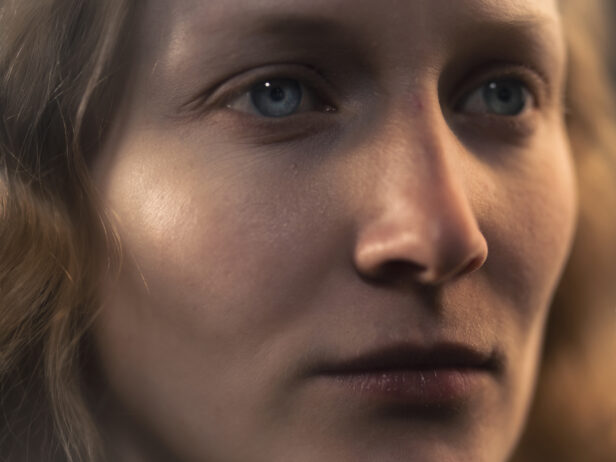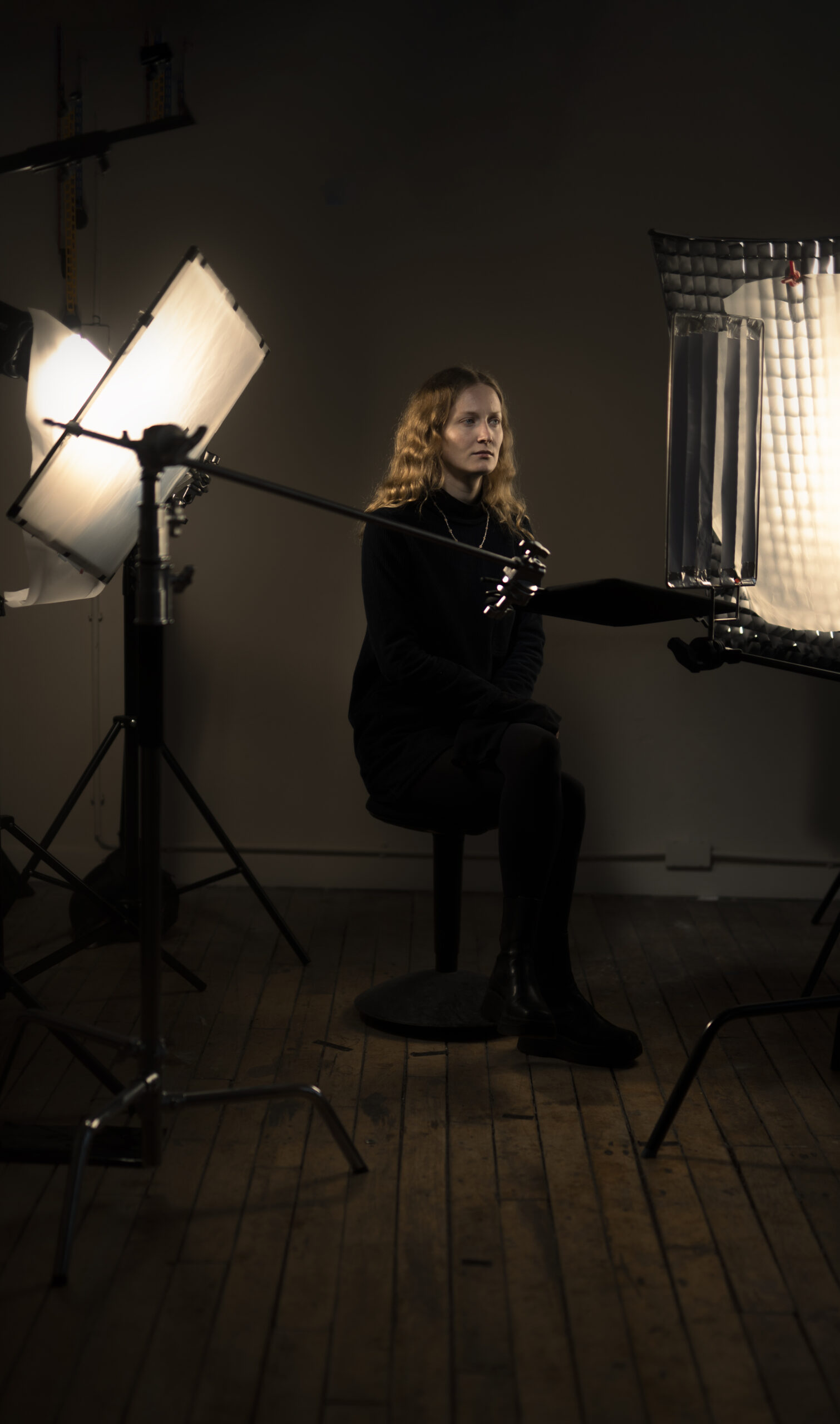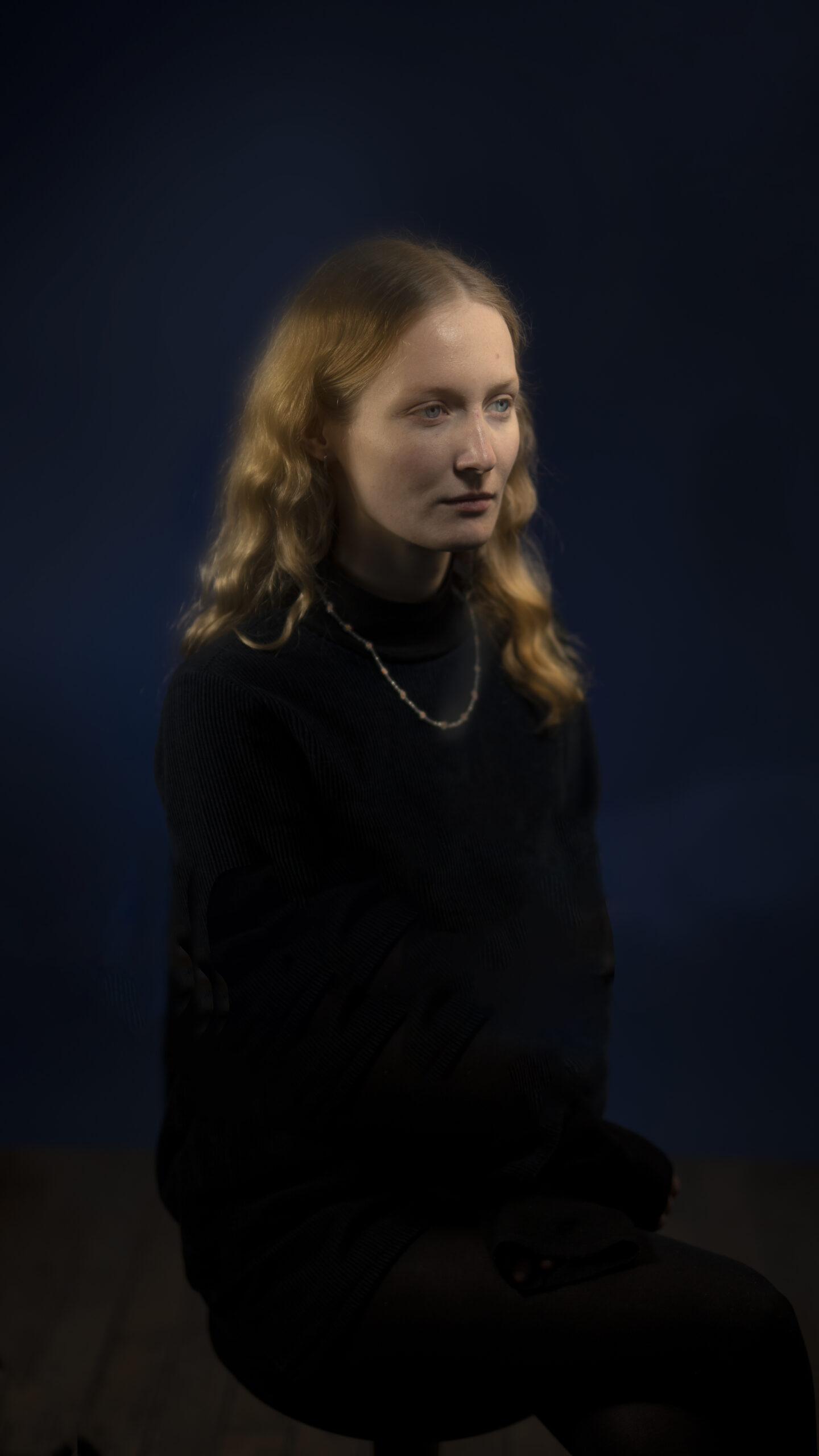
Talk with Masha Domracheva
ARTIST IN RESIDENCE @ WOW AMSTERDAM |
|
The conversation between Masha Domracheva and Roman Ermolaev took place on the 5th of March 2022. Things have changed a lot since then and changing every day, if not an hour. Despite that, we think that the idea behind this text and the ideas running through it keeps its relevance and can be counted as a document which deserves to be published. Masha and Roman are living in WOW Amsterdam/Lieven – their conversation translating their personal thought on ongoing situation.
R: Have you heard about the letters to Russian students in the Netherlands warning about possible revocation of their visas? Someone left the comment that Rietveld did not formulate them very well… Though the visa isn’t even an issue for them at the moment, who will be paying student’s tuition fee? M: For me, it’s not even the question of visas. Imagine that you have people under your wing that you supposedly should take care of and suddenly you’re threatening them… Try to put yourself in their position: Those people’s house is falling apart and you get an extra trigger for anxiety… the threat — is a trigger for depression. There is a visible lack of what we call sensitivity.
R: Yes…considering the western approach working with the upcoming tradition of care strategies. Well.. because something what we are experiencing, what is happening to our country…Russia. Russia will cease to exist as we know it. The matter of fact, it has already ceased to exist. Even if these sanctions are lifted. Let’s start from that anyway it will be quite a long process. Companies that left will not be able to return to the market quickly, it will take some time. It will take at least 5 years. And then the reparations… That’s it, we are at the finish. But the most important thing is that I was just listening to Mironov, an economic observer. He says that sanctions are being imposed against general crowd and this is so convenient for Putin because it on the contrary unites people, with the motto we are all fucked, yes, but we are together. Comradory in Russian style. Instead of sanctions against oligarchs, against the presidential power structures building an unattackable bunker around him.
M: Well, in principle this sanctions work on both fronts. Though they generally don’t care about people who aren’t on their turf. Naturally, no one is thinking at all about what happens to the average Russians as such. They only care about Russians who are doing something on their territories because they are bringing them some economic benefits.
R: Now is the only chance for the Russians because the West has supporting Ukraine. The West is usually extremely-tolerably impervious towards dictators who practice torture, murder, concentration camps etc. And now if Putin loses and leaves Ukraine, he will take out all his aggression, all his anger on the Russian people. But the west will not give a shit. Their mindset will be — It is happening in Russia, it does not concern us. Thereby if we have a chance for liberation then it is now — and while there is a war with Ukraine, — Russian people have a real chance to get support from the West if they go on the streets, if they demonstrate insurrection. Contrary to that, when the war with Ukraine is over, and it will be over, as it can’t be won. (Well, really, they’re stuck there.) Then that’s it, it’s the end. Russia will be North Korea with 150 million people or less due to immigration.. Solution is only and only one — we need a political party. (Laughing).
M: Laughing. Ok, so the real purpose of our meeting… Of course! The Russians in Europe before the revolution! We already had that and I’m thinking about that too, of course!
R: Well I don’t know what will happen now. I just recently spoke with Russian ballet dancer living in Paris. In their world everything is happening through the system of castings. But at least for the moment these guys can forget about them… Russian dancers, musicians won’t be accepted anywhere in a near future. By the way, the Venice Biennale has refused to present a Russian pavilion and Cannes Film Festival refused to have a Russian delegation at all.
M: I was involved a little bit in the work on the Russian pavilion. And I’m glad that Raimundas, Kirill and Sasha themselves withdrew their participation before the Venice Biennale cancelled the Russian pavilion. Well, I mean, it shows the conscience of Russian cultural figures. And then, after all, this is the main event for the representation of Russian art. And if the entire pavilion team withdraws so quickly due to ethical principles, this preserves the representation of Russian contemporary art to the world in a positive way. At least the West has taken the signal that Russian contemporary artists do not support the war.
R: So what do you think our future looks like?
M: Personally, ours is not bad. Unfortunately that cannot be said about the rest of the Russians. And we have a big responsibility, it seems to me. To help them now, because no one else can help them at the moment. The focus has shifted, it’s like there’s no other way anyhow. At least on some scale, with some community we have to do some work, do something. I’m currently planning an exhibition with the participation of Russian artists.
R: Why do we all like revolutionaries? It seems like they all had a youthful maximalism. Even when they were in their thirties, they managed to retain that youthful maximalism in themselves…
M: Yes, it’s amazing. I think it was facilitated by long stays abroad, travel, learning and a growing motivation. I think P. Pestel abandoned his revolutionary ideas by the age of 30. He had a complete burnout. And I think it was because he stayed in Russia! He saw that nothing was changing and he gradually became disillusioned. In contrary the immigrants were fuelled by comfort, the environment, I mean those who at the turn of the century ended up in Europe, like Lenin, Trotsky, Plekhanov…
R: Yes, they had cohesion, they had like-minded people, and that’s always nourishing. But now in Europe at least how I feel: I feel the lack of support, the lack of a group.
M: I think the number one task now is to get to know all the Russians in Amsterdam.
R: I agree with you. I met a friend of mine at a rally that we’ve been at odds with lately. And you know, instantly some of our differences faded into the background. We just hugged.
M: A common enemy unites. Is it some kind of collective Stockholm syndrome that the Russians must have who keep supporting the war? How can you be pro-Putin when you see him ruining your life?
R: I didn’t understand before, but now I realise how effective the propaganda was.
M: Yes, I understand. But when those words don’t have a direct bearing on your life — as was the case with the annexation of Crimea — that’s one thing. But now it’s so obvious that there should be common sense against propaganda. Not knowledge, not belief, not media, but common sense. Because over time people are going to feel it very strongly. How many have already felt it? How many of the most ordinary people have lost their jobs? If the whole world is against you, you can’t stand by your solely propaganda-signed beliefs to the bitter end.
R: It seems to me that the Russians can do a good job of standing up to everyone, against the whole world. (laughing)
M: Well that too is an interesting national characteristic.
M: I remember well those last moments when I was proud to say that I am Russian, it was literally the beginning of February in Mexico. We were talking about Trotsky… It was full-fledged pride. And now it’s no longer possible. And I don’t think it’s ever going to be possible…
R: I have a confession to make: I’ve never been crazy about my patriotism. I wouldn’t even say I’m a patriot. But then I suddenly found out that I am a patriot. In fact I’m a patriot because I’m ashamed of what’s going on. I’m ashamed of the crimes of which I am, in fact, a part of.
M: Yes, I feel primarily responsible for what we could have done in these last years. We didn’t use time resisting propaganda. What we basically doing now so actively: writing posts, talking to acquaintances, neighbours, people like that on the streets, we could have done all that before.
R: Ahaha, well, it’s in our tradition to do everything at the last possible moment.
M: Yes…at the last moment.
M: For me, the question of the idea of a nation state has been particularly acute in recent days. Oddity that the legitimacy and adequacy of having such a huge multi-ethnic, multicultural territory is defined by a single name… We especially have to understand now how inadequate it is to reduce something immeasurably-enormously vast and diverse to a single state with one official language and other attributes. All this human diversity cannot be held responsible and suffer consequences for the actions of a single individual. This is some kind of madness. We should go a long way after that. As a result, after realising and of all the losses should come another hope for a new future for the peoples of Russia.
R: Well, you’ve articulated Russia very nicely: the reduction of something vast to one unitary thing. You have carved out our main problem and our main virtue.
M: On the whole, yes. I mean yes, while being so different, we also have a certain shared spirit partially, shared culture due to years of common reality frame. That is also the pain, as the other such close contact but outside of Russia, used to be with Ukrainians, and the development of their country meant a certain light, hope for independence, for other ways of doing things in general. I was really happy for them during the past years, and I felt how more and more ridiculous it is when people mix us in Europe, or when we by default speak Russian… There are a lot of people like Ukraine already inside Russia. Those with whom at this point we have certain proximity, but there’s a significant difference, just because these people were once colonised. And all in all, it seems to be a natural development of history: to divide the country.
R: Russia remains the last empire that…
M: …keeps its colonies.
R: holds them in a deadly grip…
M: And apparently it’s time to have a break-up. And it’s time to start paying reparations to everyone.
R: It seems that way. Everyone always thought that the Soviet Union was the keeper of the colonies. Not really. Actually no, not really. The modern Russian regime and Putin are holding colonies and continue their affair with the idea of colonisation. Just recently there was a representative of Kenya who said just that: Comrade Putin, don’t drag us back into history. We should move forward. And that’s exactly what was happened at the meeting of Putin and Sokurov, when the latter openly said that the Caucasus is not Russia and it is time for the Caucasus to leave. Putin, of course, took great offence at this.
M: Of course, this has always moved him the most. Anti-imperialist sentiment.
R: I still remember when I was about 6 or 7 years old wishing that St Petersburg to be separated. And not the Leningrad Region, but St. Petersburg itself. Laughs.
M: I too have always had dreams of the Urals, of a Ural Republic. We even had attempt to form it: Ural Republic officially existed from July 1 to November 9, 1993. And weirdly, it was the exact timeframe within which I was born — on October 17, 1993! But then Moscow was frightened by the autonomy of the Urals and the Republic was dissolved. Even though it had its own constitution, flag and even its own currency. We have everything in the region to support its economy. The Urals can be quite self-sufficient and could exist better. The money would stay in the region and wouldn’t go to Moscow for the upkeep of the army and everything else. And culture! We have Ural Industrial Biennial, the Biennial, which was recognised to be the best in Russia by now! Urals is a contemporary art hub.
M: I don’t know, there is a little hope… Now the most important is that as little people as possible die, that the war stops and Putin dies as soon as possible, and we get new adequate, intelligent and hard working president, who will stand on his knees, and perhaps stay there for all his one and only presidential term, Russian military and propaganda army gets severely punished (I would seriously consider death penalty here), and Russians, who supports war get dezombification retreat until they are mentally healthy and not dangerous for the rest of the society. And Ukrainians start coming back home, start healing, receiving reparations, getting support from Europe and have a better life as soon as possible. Then maybe things will start getting better for everyone in this part of the Continent…
R: My big political interest when I was a kid was always Churchill. And he was an imperialist. He turned out to be the last man under whom the whole empire collapsed and it’s the same story with Putin. He is destined to be the one who will destroy the empire. Photos by Roman Ermolaev ______________________________ Masha Domracheva (Yekaterinburg, 1993) is a curator and researcher working and living in Amsterdam. She is an alumnus of de Appel’s Curatorial Programme (2020/21), and holds BA in Art History and MA in Political Philosophy. She was curator at the Ural branch of the National Center for Contemporary Arts, and general coordinator and assistant curator of the Main project of the 4th and 5th Ural Industrial Biennial. For the 6th Biennial edition Masha curated special project MZhK-1980, which produced three exhibitions, performative and public programmes and a book. |
by WOW

